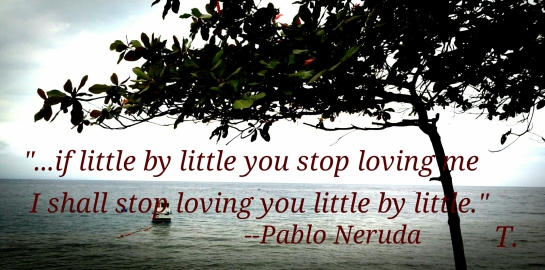
Beauty in the eyes of love

Beauty in the eyes of love



Centennial Park, Iligan, Philippines



Sunset at Dalipuga, Iligan, Philippines



Afternoon clouds over Visayas, Philippines. I was so excited to see this cloud formation. Looks like a duck, don’t you think?
March 3, 2016

No moonlight photos because I found I have never taken good enough photos of the moon. I seldom go out at night these years. Sigh
Click here to hear a reading of the poem.
(So why am I talking about love again? Because I’m tired of hearing people tell me I look tired or miserable. In short I’m tired of feeling tired. Logical? No? I don’t care.)
Batter my heart, three-person’d God ; for you
As yet but knock ; breathe, shine, and seek to mend ;
That I may rise, and stand, o’erthrow me, and bend
Your force, to break, blow, burn, and make me new.
I, like an usurp’d town, to another due,
Labour to admit you, but O, to no end.
Reason, your viceroy in me, me should defend,
But is captived, and proves weak or untrue.
Yet dearly I love you, and would be loved fain,
But am betroth’d unto your enemy ;
Divorce me, untie, or break that knot again,
Take me to you, imprison me, for I,
Except you enthrall me, never shall be free,
Nor ever chaste, except you ravish me.
Your teams go on the road, so why don't you?
Understanding the encultured brain
Life in Copenhagen, Denmark, after moving during Covid-19.
Words are to be lifted from the soul! Photograph’s are memories of the heart yet to unfold! Let’s begin!
Innovation. Efficiency. Improvement.
It's just banter
Home of Lukas Kondraciuk Photography
Discover The Worlds Hidden In Ordinary Objects
Barcelona's Multiverse | Art | Culture | Science
Everything in life is balance...
Motivate | Inspire | Uplift
all things food and nutrition
BY GRACE THROUGH FAITH
philosophy, books, and writing
Traditional Catholic + Christianity + Conservative Politics + Images + Stories + Insights + Little Lights
The blog of Sandy J. White